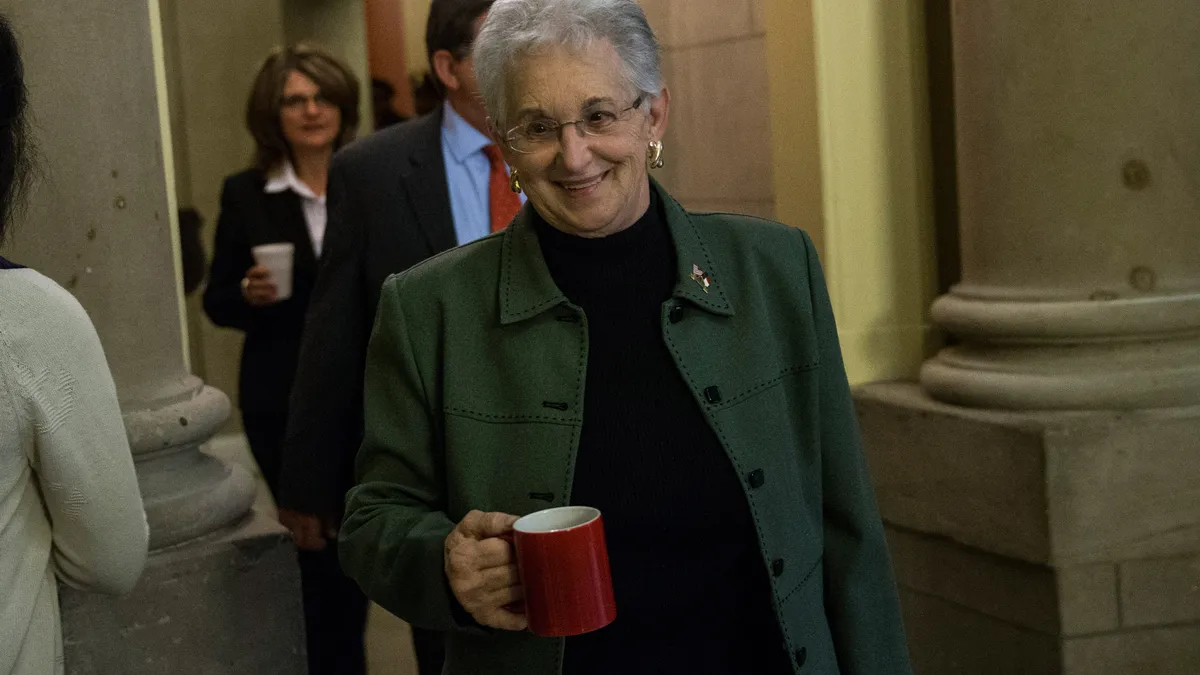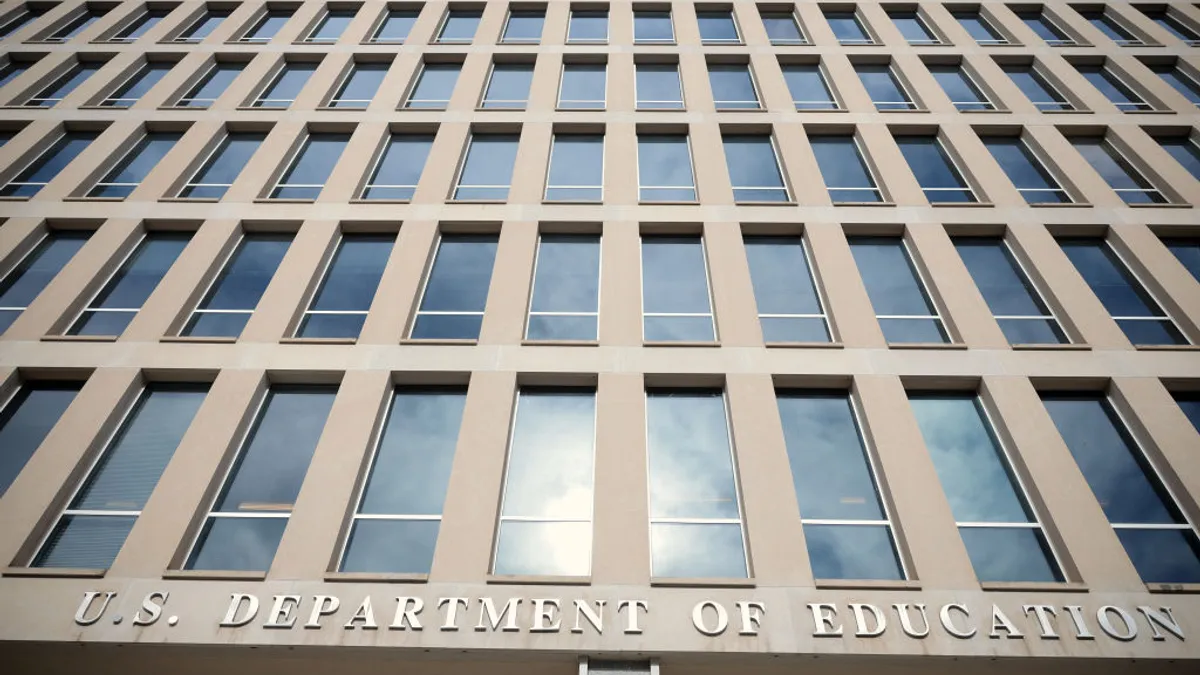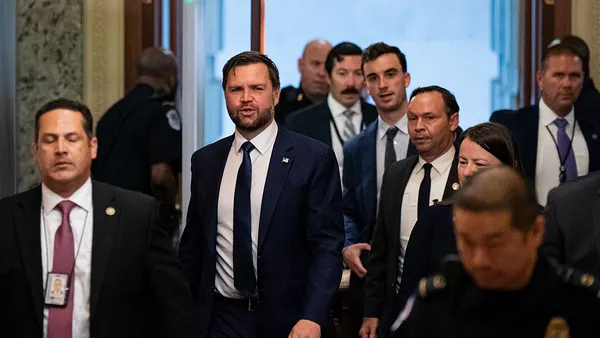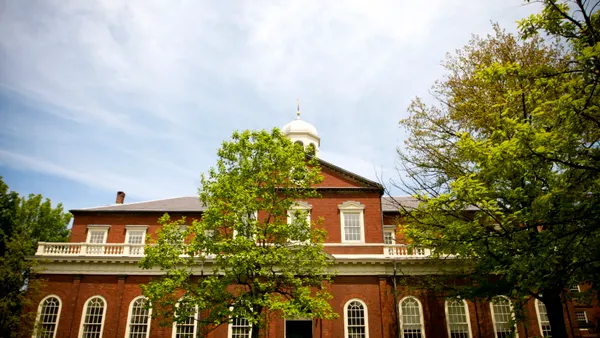Dive Brief:
- Republican lawmakers on Thursday released a legislative proposal to rework federal student loan policies, presenting it as an alternative to the Biden administration’s plans, which they deemed costly and regressive.
- The bill would slim down the types of repayment plans the U.S. Department of Education could offer, eliminate the beleaguered Public Service Loan Forgiveness program, and block the education secretary from issuing regulations that would cost the federal government more money. The legislation is known as the Responsible Education Assistance through Loan (REAL) Reforms Act
- It would ax a loan program aimed at graduate students, and it would end a practice known as interest capitalization, which balloons borrowers’ debt by adding unpaid interest to the principal amount of a loan. The bill would also allow federal Pell Grants to apply toward short-term programs with a minimum of 150 hours over eight weeks.
Dive Insight:
President Joe Biden has moved to retool several pieces of the federal student loan system, including Public Service Loan Forgiveness, or PSLF, which forgives loan debt of workers in fields like nursing and government after a decade of qualifying payments. He’s also pledged to revise income-driven repayment plans, in which borrowers’ monthly installments are determined by how much they earn, typically over a 20- to 25-year period.
Both of those programs have garnered criticism.
Only a tiny fraction of borrowers eligible for PSLF received debt cancellation over the life of the program, which was created in 2007. The Biden administration temporarily waived some PSLF requirements last year, offering flexibility for borrowers that expires at the end of October. The waiver makes more payments eligible for PSLF than would otherwise have been.
The Education Department has also said loan servicers have steered borrowers away from income-driven plans and into forbearance, which temporarily allows for no or small monthly payments but typically doesn't allow borrowers to progress toward paying down their loans or reaching debt forgiveness thresholds.
The department recently delayed the release of a proposed regulation on income-driven plans.
Republicans have been quick to condemn the administration’s efforts, as well as its repeated extensions of pause on monthly loan repayments first started because of the coronavirus pandemic. They’ve also lambasted reports of Biden considering widespread loan forgiveness. Most recently, Biden has mulled using executive action to cancel $10,000 in debt per borrower.
The GOP bill would stop the education secretary from issuing what Republicans described as “illegal waivers for loan forgiveness programs.” It is being spearheaded by Rep. Virginia Foxx of North Carolina, ranking member of the House Education and Labor Committee, as well as Reps. Elise Stefanik of New York and Jim Banks of Indiana.
It would simplify the number of repayment plans to just two — a standard, decade-long option and one based on income.
The bill would also significantly limit loan options for graduate students.
It would establish loan limits for them, so they could not take out more than $25,000 annually, or no more than $100,000 for the duration of their degree program. The legislation would also get rid of Graduate PLUS loans, which enable graduate students to borrow up to their total cost of attendance.
Colleges would be given flexibility to lower borrowing limits based on students’ majors or other circumstances, to protect them from taking out unaffordable amounts of debt.
And the proposal would try to ensure that tuition and fees don't exceed the earnings increase that students get from enrolling in certain programs, another way to protect them from mountainous debt.
Democrats and progressive groups denounced the bill.
Rep. Bobby Scott of Virginia, chair of the house’s education committee, said in a statement the plan “would make student loans more expensive to obtain and harder to repay,” counter to the intent of the federal loan system. He singled out the provisions concerning elimination of PSLF and income-based plans.
And The Institute for College Access and Success said the bill would exacerbate the student loan crisis.
“It would make student loans more expensive, restrict educational access for students from low-income backgrounds, and expand federal funding to programs that provide poor return on investment,” TICAS President Sameer Gadkaree said in a statement. “As the nation emerges from the Covid-19 pandemic, we need forward-thinking policies that will make postsecondary opportunities more accessible and equitable.”












